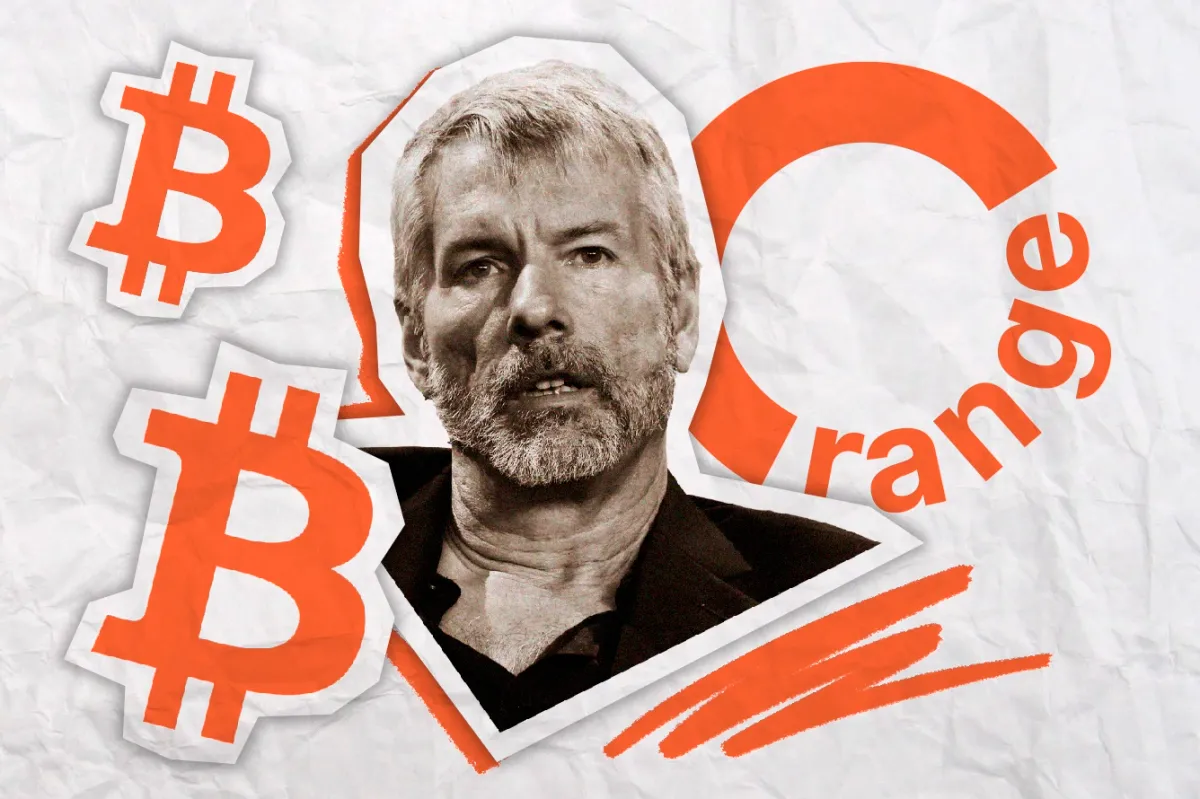
Last week, at the Microstrategy World conference in Vegas, Michael Saylor, the founder and executive chairman of the largest holder of Bitcoin, Microstrategy, unveiled a Bitcoin-based decentralized identifier (DID) called Microstrategy Orange.
Just like the blockchain it is based upon, the mechanism is set to be truly global, decentralized, incorruptible, and equalitarian. A standard by which everybody can have a verifiable and immutable online identity. "Wouldn't it be great if instead of a blue check, green check, etc, there was an orange check that was a global standard?" Saylor suggested.
Saylor once claimed that "there is no second best" when it comes to financial assets other than Bitcoin. But can the same be said about the identity verification tool presented on Wednesday?
As a big proponent of Bitcoins, Saylor believes that "we are very early in the digital transformation of money" and that the real adoption will come in the next few years. The prediction has recently been corroborated by BlackRock, the asset management company behind the largest BTC ETF, which disclosed last week it is in talks with major financial market players keen on adding cryptocurrency-based financial products to their portfolios.
The appeal of Bitcoin stems from the fact it's the first-ever standard financial product recognized by people worldwide. It is transportable, fragmentable, secure, and has a limited supply.
Creating a decentralized identifier that leverages the characteristics of the Bitcoin blockchain is, as Saylor's argument goes, the best way to make a worldwide identity system of "trustless, tamper-proof, and long-lived decentralized identities."
There are already a couple of DID methods on the Bitcoin blockchain. Yet, according to the unofficial draft of the Orange protocol available on Github, "they introduce external dependencies" that did:btc, the technical name of Microstrategy's solution, addresses.
The identity verification tool, which will store data on the blockchain similar to how Ordinals inscriptions are kept, solves shortcomings of other BTC DIDs by using more advanced software, not fetching external data, and not allowing third parties to control the identifiers.
However, a global, secure, and decentralized database of identities powered by Bitcoin might not be enough to face the challenges of identity verification in the digital world. Blockchains provide immutable data storage, but have problems connecting with the real world – it depends on oracles or centralized verifiers to 'read' the real world.
Solutions such as WorldId by Worldcoin, TON's palm recognition verification system in partnership with HumanCode, or the soon-to-be-launched Humanity Protocol use biometric data mechanisms to ensure that digitally verifiable identities can only be used by those who created them.
Protocols offering Proof of Personhood or Proof of Humanity services are on the rise. These solutions tap into the issue of the proliferation of bots in digital spaces, and rather than just verifying an identity, they confirm that the agent responsible for actions is human. Unfortunately, Microstrategy Orange won't address these problems.
DIDs are not human verification systems, and they are now one step behind in facing issues posed by advanced hacking techniques, AI agents, and deep fakes.
Listening to Michael Saylor speak about Bitcoin as an underlying asset of a truly global financial system on the rise is compelling. The CEO's almost religious belief in the potential for growth of the digital asset can pique the interest of even the most skeptical of investors.
Yet, while his enthusiasm for Bitcoin is shared by many in and outside the industry, Microstrategy's novel identity solution is not new, as it has questionable utility in the face of an already developed market and new environment challenges.
In a technical breakdown of the Orange Protocol, blockchain expert Daniel Buchner noted that "the protocol needlessly bloats Bitcoin." While Microstrategy ought to start finding ways to leverage its ownership of 214,400 BTC, did:btc might still not be it.

